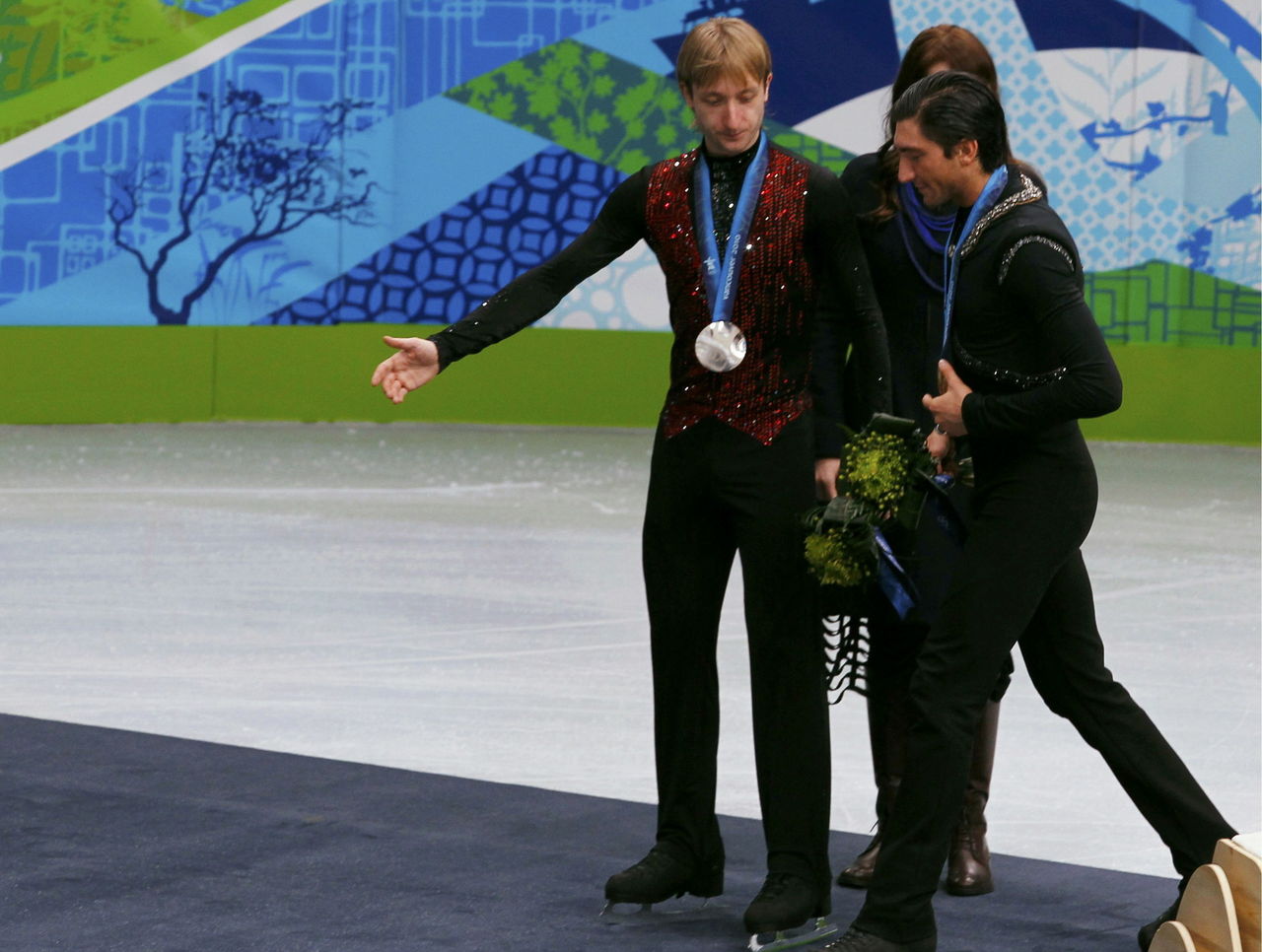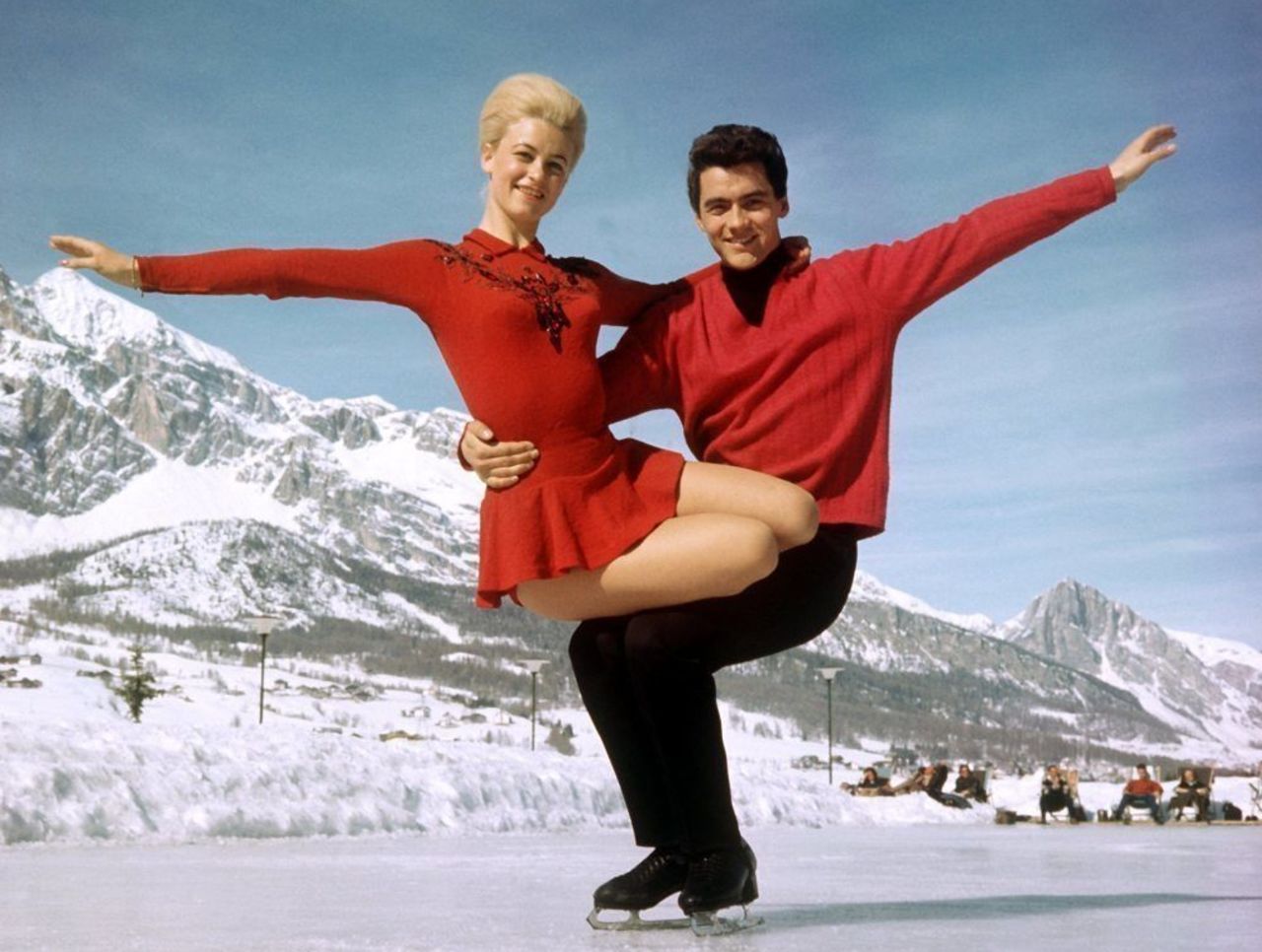Three ridiculous Olympic figure skating controversies
Embellished costumes and fast-moving footwork should be the focus of Olympic figure skating. For some, stepping onto the world's biggest stage is a once-in-a-lifetime opportunity. Others (Evgeni Plushenko) will skate there for at least a decade.
In reality, the outfits detailed with glitter and the glisten of blades across the ice distract from the sport's ugly history of medals won with bribes and Olympic berths secured with a crowbar.
The entire format of judging across the discipline changed in response to a 2002 scandal, when Canadian pair Jamie Sale and David Pelletier were denied the gold medal in Salt Lake City. Allegedly, the French judge struck a deal with the Russians in order to gain an advantage for French athletes in the ice dance portion of the competition.
"There's no point in even commenting on such nonsense," Russian sports minister Vitaly Mutko said to R-Sport on Saturday. Yes, this Saturday in the year 2014, because it's all coming full circle.
Whether it's somehow related to 12-year-old wounds, French paper L'Equipe broke the story that the Russian ice dance judge would mark in favor of Americans Meryl Davis and Charlie White in exchange for the U.S. judge helping Russia win gold in the team event.
Reigning Olympic champions Tessa Virtue and Scott Moir have fallen short to Davis and White all season, and how can they deal with their upcoming performance knowing the odds might be stacked against them no matter how well Tessa twizzles?
“The best thing about being an athlete at the Winter Games is that’s none of our concern," Moir said to reporters. "We’re here for our moment and our moment is what Tessa and I make out on the ice.”
Turns out the Russians have Julia Lipnitskaia and don't need any judging help, though the Americans did post a new world record score in free dance at the end of the team event on Sunday.
So, who else has had their moment on the ice reduced to something completely out of his or her control?
The Quad Controversy

To quad or not to quad: in men's figure skating, it's not supposed to be a question. At least since 1994, which was the last time a program without a four-rotation jump won an Olympic title.
Even Evan Lysacek stated he didn't believe someone who skated cleanly could win the 2010 Games without a quad, but that was a month before a stress fracture in his left foot forced the American to change his course of action in Vancouver. When he skated his program without one and won gold, sending Evgeni Plushenko's technically superior program to the silver medal, the figure skating community was divided.
Jump to before the games, when Plushenko said:
If the judges want someone to place high, they can arrange that. If judges want someone to place high, they can arrange it. Like (at the European Championships in January) Brian Joubert got more points for his transitions than me, although we did exactly the same transitions on the ice. In fact, we don't have any transitions because we focus on jumps.
A longtime U.S. judge sent an email to more than 60 people, including many international officials and judges, noting Plushenko's remarks, and that judges should "think about what we saw" before putting down the marks.
The judge, Joe Inman, did not work the 2010 Olympics, but the influence of his email was quite obvious.
For the same programs in which he'd earned transition scores of 7.0-7.5 in previous contests, Plushenko received a career-low 6.8 for transitions in his Vancouver short program. In the free skate, 10 skaters recorded better scores than the Russian's for transitions.
The "How did that happen?" pairs gold medal

In 2002, North American announcers praised Canadian pair Jamie Sale and David Pelletier at the end of their 'Love Story' long program in Salt Lake City. As the marks showed up on the screens and the Canadians finished second behind the Russian pair, NBC analyst and former international skater Scott Hamilton famously said "How did that happen?"
The French judge was allegedly bribed into giving lower marks to Sale and Pelletier in favor of Russia's Elena Berezhnaya and Anton Sikharulidze. In exchange, the Russian judge would award higher marks to the French ice dance team. (The French won gold in ice dance, if you must know...)
Days after the controversy surfaced, Sale and Pelletier were awarded gold medals in another ceremony. Though Berezhnaya and Sikharulidze graciously agreed to appear atop the podium for the second ceremony, the third-place Chinese team declined to attend, calling the affair a farce.
The scandal marked the end of the forever-used 6.0 judging system in figure skating, and paved the way for the ISU's new system. And as the quad controversy in 2010 confirmed, it's still not perfect.
The silver that wasn't, but then was

In 1964, the West German pair of Marika Kilius and Hans-Jürgen Bäumler were the favorites at the Innsbruck games. The World Champions were narrowed out of a gold medal by a slim margin of five votes to four, awarding Soviets Ludmila Belousova and Oleg Protopopov the top honor.
After the Germans made the podium, gossip emerged that Kilius and Baumler had signed a contract to appear in a professional ice show just days before the Olympics. An I.O.C investigation confirmed the details, and in 1966, the team returned their silver medals.
The fourth place team from the U.S. was awarded a bronze, and the Canadian bronze medalists bumped up to silver. But the matter was never really settled.
Two German members convinced the I.O.C to return the silver medals to Kilius and Baumler in 1987 -- 23 years after the Games. To confuse things even further, the Canadian and American representatives were never notified of the change and the record books weren't accurate from nation to nation on what went down with Innsbruck.
According to a New York Times story from December 2013, the I.O.C. finally confirmed the official result of the 1964 Innsbruck pairs contest: the Soviet team earned gold, the Canadians and West German team share the silver, and the Americans own the bronze. An I.O.C. email to the Times said that since 1987, that was always intended to be the result.